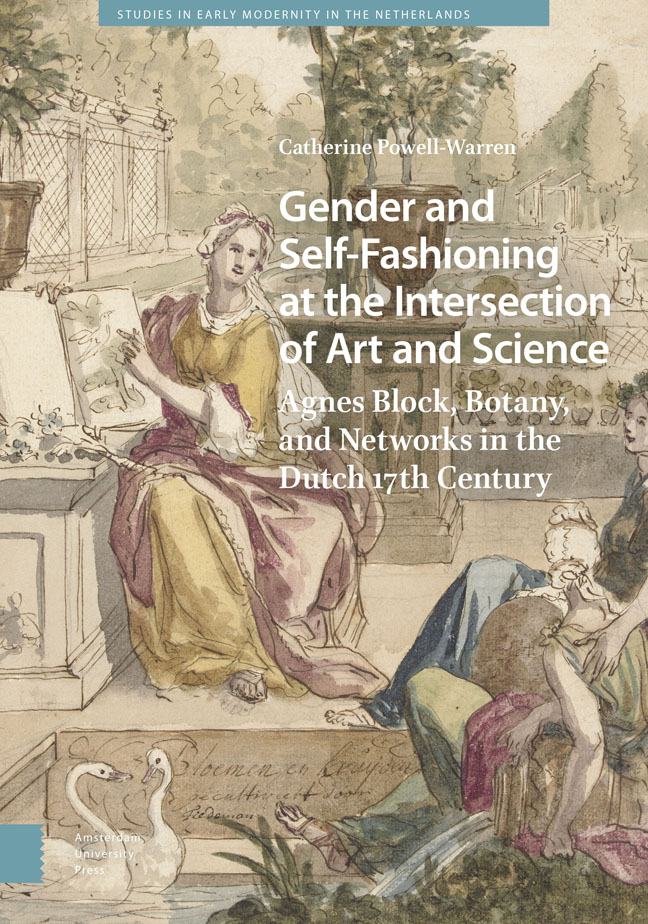 Gender and Self-Fashioning at the Intersection of Art and Science
Gender and Self-Fashioning at the Intersection of Art and Science Book contents
- Frontmatter
- Dedication
- Contents
- List of Figures and Photographic Credits
- Acknowledgements
- Introduction
- 1 Vijverhof and the Pursuit of Nature
- 2 Vijverhof in Context
- 3 Vijverhof as a Space of Knowledge Creation, Exchange, and Relationships
- 4 Becoming Flora Batava
- 5 Flora Batava in Context
- 6 The Bloemenboek and Block’s Watercolours: Self-Fashioning at the Intersection of Art and Science
- 7 The Bloemenboek as a Meeting Place and Visual Manifestation of Agnes Block’s Artistic Network
- Conclusion
- Appendix A
- Bibliography
- Index
2 - Vijverhof in Context
Published online by Cambridge University Press: 20 February 2024
- Frontmatter
- Dedication
- Contents
- List of Figures and Photographic Credits
- Acknowledgements
- Introduction
- 1 Vijverhof and the Pursuit of Nature
- 2 Vijverhof in Context
- 3 Vijverhof as a Space of Knowledge Creation, Exchange, and Relationships
- 4 Becoming Flora Batava
- 5 Flora Batava in Context
- 6 The Bloemenboek and Block’s Watercolours: Self-Fashioning at the Intersection of Art and Science
- 7 The Bloemenboek as a Meeting Place and Visual Manifestation of Agnes Block’s Artistic Network
- Conclusion
- Appendix A
- Bibliography
- Index
Summary
Abstract: This chapter situates Agnes Block’s ownership and development of Vijverhof in context. An exploration of visual and literary culture alongside the Dutch investment in land reclamation firmly anchors the country estate at the heart of a nascent national identity. A comparison of Block’s plant collection with those of the most celebrated public and private gardens establishes that Vijverhof was on par with the very best that Dutch botany had to offer. The case of Magdalena Poulle at Gunterstein shows that Block was not alone in exercising her agency through land acquisition and the development of a country estate that would become intertwined with her self-representation. Block, like Poulle, far from being on the periphery, was part of a national cultural movement.
Keywords: national identity and gardens; early modern natural history; Gunterstein; women and garden culture; proliferation of country estates; Dutch garden culture
The preceding chapter leaves little doubt that Vijverhof must have been a wonderful country escape, and that it was inextricable from Block’s self-fashioning and identity. Two critical questions remain, however: how special was Vijverhof as a garden, and was Block unique as its creator, caretaker, and owner?
Answering these questions requires situating both Block and Vijverhof in the socio-cultural context of the seventeenth-century Dutch Republic. This was a world in which country life, the pursuit of nature, and the development of natural knowledge were lauded as ideals. The period of time spanning Block’s adult life was characterized by the development of natural sciences, the embrace of empiricism, and a fascination for botany. Indeed, botany and gardens were critical components in the formation of a Dutch national identity. Thus, this chapter argues that Vijverhof exemplified a passion for gardens and botany that captivated the entire country and, as such, placed Block and her pursuits at the heart of the Dutch Zeitgeist. A case study of Magdalena Poulle and her estate, Gunterstein (also along the Vecht, nearby Vijverhof) provides support for the proposition that although it was not necessarily commonplace, women did buy country estates and did invest resources in developing sophisticated gardens.
Vijverhof: Representative of a Particularly Dutch Passion for Botany
It is a key underpinning of this book that Block’s interest in botany and devotion to her country estate transcended the individual and the marginal.
- Type
- Chapter
- Information
- Gender and Self-Fashioning at the Intersection of Art and ScienceAgnes Block, Botany, and Networks in the Dutch 17th Century, pp. 67 - 90Publisher: Amsterdam University PressPrint publication year: 2023


